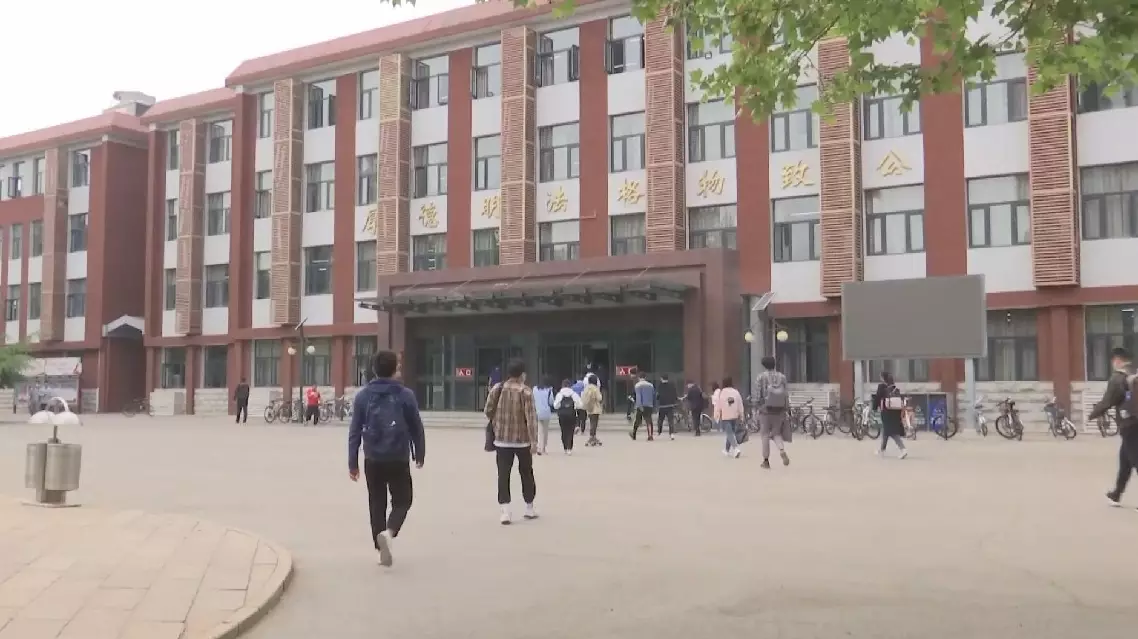In a significant move to enhance educational support, China has implemented policies to increase the standards and expand the coverage of government scholarships and grants, as announced by the Ministry of Finance, Ministry of Education, and Ministry of Human Resources and Social Security.
The adjustments, which began last year, aim to alleviate financial burdens for students across various levels of education. Some of these measures have already been put into effect.
Starting this spring semester, the average financial aid standard for high school students has been raised from 2,000 yuan (around 276.5 U.S. dollars)to 2,300 yuan (around 317.98 U.S. dollars) per student annually, with local authorities setting specific amounts between 1,200 (around 165.9 U.S. dollars) and 3,500 yuan (around 483.88 U.S. dollars) based on regional conditions.
Similarly, the average aid for secondary vocational school students has been increased from 2,000 yuan to 2,300 yuan annually.
Notably, rural third-year students from 11 formerly contiguous poverty-stricken areas, including the Liupan Mountain region, as well as Xizang, Tibetans-inhabited areas in four provinces, and four prefectures in southern Xinjiang, are now fully included in the national financial aid program.
Additionally, the government has raised the reward levels of government scholarships for undergraduate and vocational college students, and increased the number of scholarships available for both undergraduates and postgraduate students.
Starting in 2025, China will also increase the central government financial support standard for postgraduate academic scholarships in universities directly under the central government, raising the annual amount for master's students from 8,000 yuan (around 1,106.01 U.S. dollars) to 10,000 yuan (around 1,382.51 U.S. dollars) and for doctoral students from 10,000 yuan to 12,000 yuan (around 1,659.02 U.S. dollars).

China increases financial aid, scholarships for students
Visiting Chinese Foreign Minister Wang Yi said Saturday China is willing to work with Lesotho to strengthen exchanges on governance experience, enhance coordination in multilateral affairs, and advance the China-Lesotho strategic partnership.
Wang, also a member of the Political Bureau of the Communist Party of China Central Committee, made the remarks when meeting with Lesotho Prime Minister Sam Matekane in the capital of Lesotho.
During the meeting, Wang congratulated Lesotho on the 60th anniversary of its independence this year, and spoke highly of Lesotho government's efforts to prioritize economic development and steer the African country onto a path of sustainable growth. Since the Beijing Summit of the Forum on China-Africa Cooperation (FOCAC) in 2024, the two sides have advanced cooperation under the 10 partnership action plans unveiled at the summit, successfully implementing a number of key projects to effectively promote Lesotho's development and revitalization, Wang said.
China stands ready to work with Lesotho to strengthen exchanges on governance experience, enhance coordination in multilateral affairs, and push for greater development of the China-Lesotho strategic partnership, he added.
Calling on the two sides to firmly support each other, Wang said that China will accelerate the implementation of its zero-tariff policy for African countries, including Lesotho, expand bilateral trade, investment and industrial cooperation, facilitate broader access of Lesotho's specialty products to the Chinese market, and continue to support Lesotho's national development.
China will continue to stand firmly with African countries, uphold justice for the Global South, including Lesotho, oppose unilateralism and acts of bullying, and work together to build a community with a shared future for humanity, Wang said.
On his part, Matekane said during the meeting that Lesotho cherishes its friendship with China and the strategic partnership between the two countries, and expressed gratitude for China's valuable support for the development of African countries, including Lesotho.
Lesotho firmly adheres to the one-China principle and resolutely supports China in safeguarding its core interests, he said, noting that his country stands ready to strengthen strategic mutual trust with China, expand people-to-people exchanges, jointly implement the outcomes of the FOCAC Beijing Summit, and deepen cooperation in areas such as infrastructure, manufacturing and energy.
Matekane stressed that China's zero-tariff policy for African products will inject new impetus into Lesotho's development. He also expressed Lesotho's willingness to strengthen solidarity and cooperation with China on multilateral platforms such as BRICS to jointly address global challenges.
On the same day, Wang also held talks with Lejone Mpotjoana, minister of foreign affairs and international relations of Lesotho.

China, Lesotho to strengthen exchanges, advance cooperation

China, Lesotho to strengthen exchanges, advance cooperation











